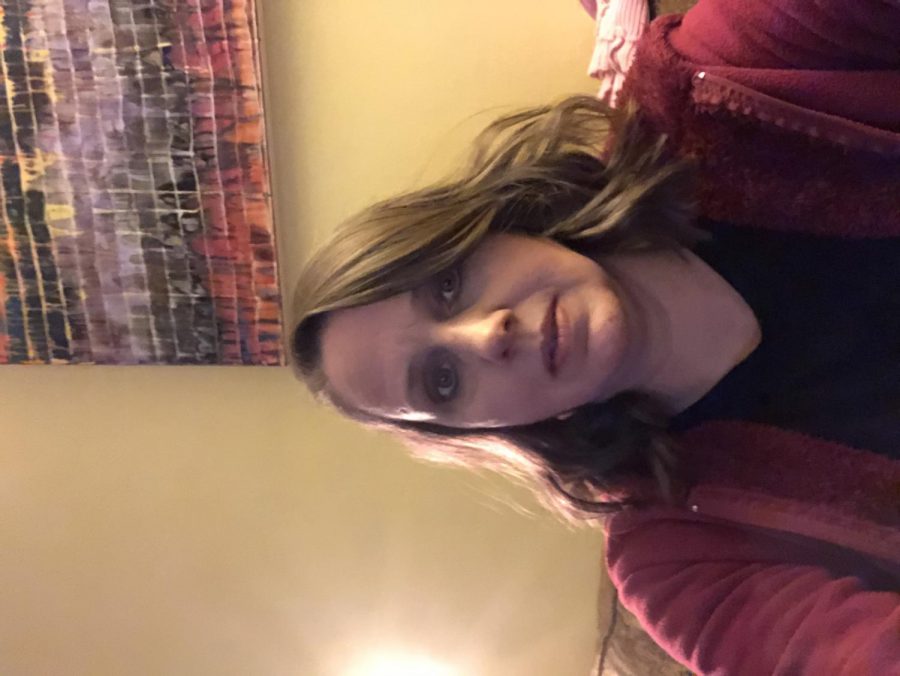Ann Aipperspach: Wishing people understood what it means to be immunocompromised during COVID-19 pandemic
April 16, 2020
This Q&A is the ninth in a 19-part series, “19 COVID-19 Stories,” updated on Mondays, Wednesdays and Fridays, diving into the unique perspectives of the Corvallis community as they face COVID-19 and all its social and economic effects.
Ann Aipperspach is a non-traditional 47-year-old Oregon State University senior student, working toward a major in history. She got diagnosed with lupus four months ago, but said she has been coping with it for around 3 years. She was also diagnosed with Sjögren’s syndrome in January.
What does it mean to you to be immunocompromised?
For me to be immunocompromised is very scary right now. I have Sjögren’s syndrome and lupus. As I read all the reports about the deaths from the virus, most have been people with underlying conditions and/or elderly. For me, any interaction with people could infect me.
I wish people would take this more seriously. When I get sick even with a cold, it lasts much longer due to my conditions. I wonder what this will do to me and try not to think about it. As a younger college student you might not think it will affect you but you never know if you can pass it on to other people like me.
What would you say to people that had near to no experience with immunocompromised people to help them understand your experience?
I was trying to think of a way that young people could understand the community spread and what it means for high risk groups. If this helps them understand – picture yourself going to a party with a 6 pack of beer. You drink one or two and give the rest to your friends. Now imagine if everyone came to the party with a 6 pack and shared similarly. Now imagine a few people at the party have asthma, diabetes, or lupus. The spread by just being there with the “beer”is all this virus needs to take hold as something like half the cases in the country are asymptomatic – not showing any symptoms. You might feel fine and recover but myself and millions like me could die.
How has your daily routine changed since the COVID-19 quarantine started? How have you been grocery shopping during this quarantine?
I have been quarantining since the first week of March. I rarely leave my house. At the end of the month, the Benton County Response team gave me some food until I could get my food stamps. I went grocery shopping this month with my EBT benefits and spent most of it. Hoping that by only going once to the store, it will reduce my risk. I didn’t touch anything, I had my son pick up everything and we wiped it all down when we got home. (I am a cook, so I stocked up on everything to last the month). Every time I leave the house, which has been 6 times since March 7. I know I am playing a silent game of Russian roulette and wonder if this is the moment I will get it. The anxiety has been overwhelming at times and I try to mediate daily to help relax. I am lucky that a good friend of mine has lupus also, so we keep in contact about current news regarding the virus and its spread.
Since the quarantine started how do you obtain your medication? Has it changed somehow?
When I made the conscious decision to quarantine, I went and filled up my prescriptions as much as I could. Looking back, I am glad I did as the drug for lupus has been in high demand.
What has been the most difficult thing for you during this quarantine?
I think one of the most difficult parts of the quarantine is worrying about my family back in Nebraska and how their state is mishandling the seriousness of this virus. I keep them updated with Oregon’s efforts and tips to stay safe. Several members of my family back there have “strep” throat, although the doctor is not running a virus test. I tell them to demand it. I feel like a lightbulb switch was turned off with my life before the virus. I was job searching before all this and now with the higher risk, I cannot even work unless remotely. I was also looking at work-study jobs on campus, that’s gone too. Just as the virus can spread, my conditions affect my son too. He is on lockdown with fear of getting it and giving it to me. For now, we are bunkered down,-I try to keep busy getting my garden ready and working on classwork. It’s all I can do. One day at a time. Hoping I am still here for graduation in December.
























































































































